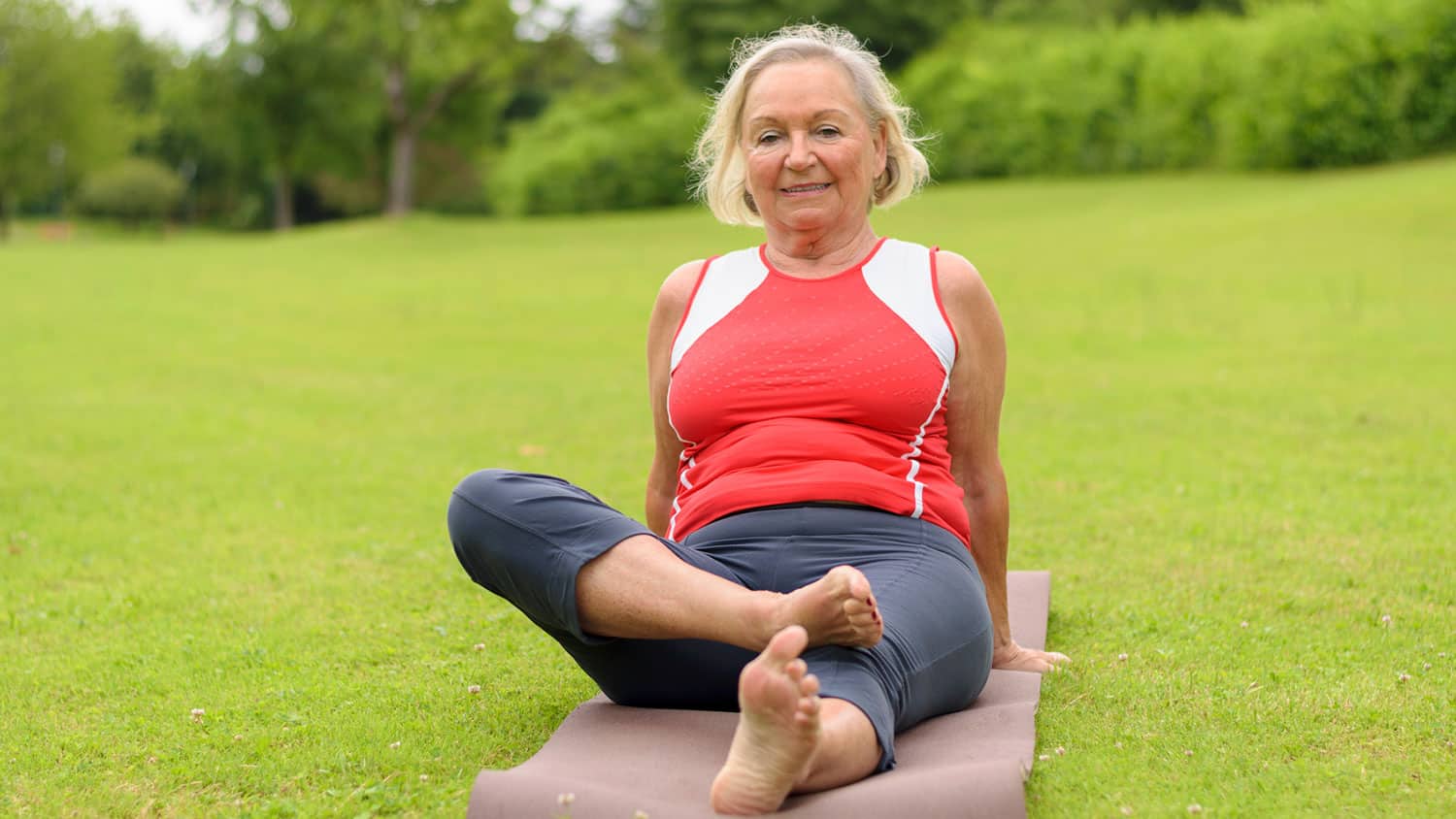
5 Ways Women Over 60 Can Maintain Healthy Joints and Overcome Arthritis
Maintaining healthy joints is so important to getting the most from life after 60. Unfortunately, few people escape joint aches and pains, however gracefully they age. Over 100 different types of arthritis can cause symptoms of pain, swelling, stiffness and restricted movement.
Arthritis literally means inflammation of the joints. Osteoarthritis (OA) is the most common, with one in two people over the age of 60 showing X-ray evidence of the condition. Often described as due to ‘wear and tear’, it is an active process in which cartilage protecting the bone ends weakens and flakes away.
This allows synovial fluid – the joint’s ‘oil’ – to leak into underlying bone causing mild inflammation. The bone responds by swelling so the joint space narrows. Eventually, the bone ends may rub together, causing increasing pain, stiffness and deformity.
Rheumatoid arthritis (RA) is the second most common form of arthritis. This is an autoimmune condition in which immune cells attack the synovial membrane lining certain joints, especially in the wrists, hands and feet. Inflammation gradually spreads to involve other tissues and can lead to eye problems, weight loss, fever and exhaustion. Here are some things you can do to minimize the impact of arthritis.
Watch Your Weight to Maintain Healthy Joints
Whatever type of arthritis you have, aim to lose any excess weight. For every extra pound of fat you carry, the overall force across your knees when walking or standing increases by two to three pounds. So, carrying an additional 10 pounds of excess fat increases the force on your knees by up to 30 pounds. Excess fat, especially around your middle, also secretes substances that increase inflammation and can make pain and stiffness worse.
Follow a Joint-Friendly Diet
Joints thrive on the same healthy diet as your heart and brain. So select plenty of fresh fruit, vegetables, nuts, seeds, wholegrains and oily fish. This includes salmon, fresh tuna, mackerel, herrings, sardines, and pilchards. It is also important to obtain adequate amounts of fluid to maintain joint hydration.
If you have RA, following a plant-based diet can reduce the number of tender and swollen joints, pain, duration of morning stiffness and grip strength. Good intakes of vitamin D appear to be important, too. You can get more information on following a joint-friendly diet here.
Exercise Regularly
Regular exercise strengthens muscles and maintains joint mobility. Non-weight bearing exercise such as cycling and swimming are easier than walking if joints are painful. Hydrotherapy, in which exercise is performed in a warm, deep pool, gives excellent results. Tai Chi can also improve pain and stiffness in older people with knee osteoarthritis. A physiotherapist can advise exercises to do at home. Hot or cold packs can help reduce pain associated with exercise, too.
Use Pain Relieving Creams and Gels
Topical treatments which sink through the skin to reduce pain in underlying joints are at least as effective as oral painkillers, and have less risk of producing side effects. The most effective, in my experience, are glucosamine gels, celedrin creams, comfrey ointments, green-lipped mussel gels and Voltarol gel.
Take Supplements to Improve Joint Health
Different people respond to anti-inflammatory supplements in different ways. Best advice is to try them for two months before reassessing whether you need to try something else.
Omega-3 Fish Oils
Fish oils provide two long-chain, omega-3 fatty acids, EPA and DHA, which are converted in the body into substances that reduce inflammation, joint pain and swelling. A number of studies showing they can reduce the need for taking prescribed painkillers in OS and RA. If you eat fish regularly, a dose of 500mg to 1g per day is ideal. If you rarely eat fish, higher doses are needed for a good, anti-inflammatory effect. You can read more about how omega-3 fish oil, cod liver oil, and krill oil can help arthritis pain here.
Glucosamine and Chondroitin
While glucosamine and chondroitin were originally thought to just act as building blocks to synthesis new cartilage and to make synovial fluid more cushioning, they are now known to reduce inflammation, suppress enzymes that breakdown cartilage, and act as biological signals to stimulate joint repair in osteoarthritis. Start with a dose of 1500mg glucosamine per day and add 1200mg chondroitin if glucosamine alone does not produce the relief you need. You can read my review of glucosamine supplements for aching joints.
Turmeric
Turmeric is an Ayurvedic medicine for treating arthritis. A recent study, involving over 360 people, confirms that turmeric is as effective in reducing knee pain and stiffness as prescribed anti-inflammatory drugs, but with significantly fewer side effects.
Other supplements are available, such as Devil’s claw, MSM and rose hip extracts, but most people will notice significant improvement from using a topical cream/gel and taking a fish oil supplement, together with glucosamine (with or without chondroitin) and/or turmeric. I have to say, since starting turmeric, my knee twinges have disappeared!
Do you take any supplements to maintain healthy joints? Which have you found most effective? Please leave your comments and join the conversation.
Tags Medical Conditions






